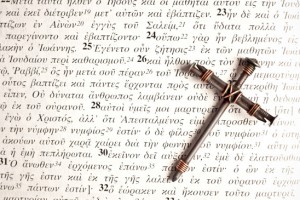 It’s been said that necessity is the mother of invention. The Space Race and the urgency to outstrip the Soviets on the way to the moon led to an enormous proliferation of scientific advance. And I don’t just mean Tang. Really significant stuff. But it took the crisis to make those advances necessary. Think of the technological advances that took place during the Second World War – tanks, airplanes, missile systems, radar technology – all made tremendous strides. Of course nothing compares to the Manhattan Project in this regard (except maybe Spam). Unimaginable progress that only occurred because of the crisis of the war.
It’s been said that necessity is the mother of invention. The Space Race and the urgency to outstrip the Soviets on the way to the moon led to an enormous proliferation of scientific advance. And I don’t just mean Tang. Really significant stuff. But it took the crisis to make those advances necessary. Think of the technological advances that took place during the Second World War – tanks, airplanes, missile systems, radar technology – all made tremendous strides. Of course nothing compares to the Manhattan Project in this regard (except maybe Spam). Unimaginable progress that only occurred because of the crisis of the war.
Life is like that. You work better and most effectively with some level of stress. Without some pressure – a deadline, a grumpy boss, financial constraints – you get lazy and complacent, you take your foot off the gas pedal. Point illustrated, let’s apply it to the New Testament canon.
Sometimes Christians are blown away by how seemingly “late” the New Testament canon took shape. Some assert that the canon wasn’t formed until 325 A.D. at the Council of Nicaea under Emperor Constantine. Why would it take 300 years to put together the Bible? Three hundred years ago the American Revolution was half a century in the future. After that long the events described were so far past that they would just be like fables and myths, right?
Well…no. That last paragraph way exaggerates the issue. In reality the canon of scripture was a settled issue for all intents and purposes long before Nicaea. In fact, a functional canon had been in existence since the time of the apostles. Even within the NT itself, we see Peter refer to Paul’s letters as scripture (2 Peter 3:15-16), placing them on an equal footing with the OT canon. As the apostles died (usually as martyrs) the church maintained the apostolic tradition through the documents written and supervised by those apostles.
There was remarkably little dispute about which books made the list. No dispute regarding the gospels at all, nor for Paul’s epistles. There was some wrangling over a few books, especially Hebrews, James, 2 Peter, Jude, 2 and 3 John, and Revelation. But even these books were widely recognized by the majority of the church from early on, they simply didn’t all enjoy universal recognition, hence the disputed status.
What were the criteria used to determine what made the cut? Well, see previous post here. Do we know they have apostolic origin and/or supervision? Do they have good provenance? Do they enjoy the testimony of the universal church (thereby testifying to the Spirit’s testimony)? Books that didn’t make the cut didn’t make the cut. I’ll say more about some of these (especially the Gnostic gospels) in some later posts.
The formation of the final list took some time to form, even though it was widely agreed upon. Why? Well, the early church had bigger fish to fry – like telling people about Jesus in the midst of persecution, establishing churches throughout the entire Roman world and beyond, etc. What led to them finally getting around to defining the canon as we know it?
Necessity. Stress. Particularly in the form of heresy. The most important heretic in this regard was a fellow named Marcion. He was what was called a Gnostic (more on this in a later post). This was a really weird worldview with not a whole lot in common with Christianity, but some Gnostics glommed on to Jesus and twisted the Christian message to suit their purposes.
Marcion taught that Jesus was a great guy and you could be saved through obtaining secret knowledge about him – you could escape the bad body and get back to the good god through Jesus. But he taught that the god of the Old Testament was a bad, evil wicked god – so he cut out the entire OT. He liked Paul (somewhat) and kept most of his letters. But he had his own version of the gospels. In fact he cut most stuff out of his canon, except for the portions that fit his (really bad) theology.
In response to the stress of the Marcionite (and other) heresies, Christians were forced to define more overtly exactly what was and was not scripture. In an odd sort of way, we owe heretics like Marcion for the definition of the canon of scripture. In this sense the canon of scripture is a lot like Spam, only way, way better.